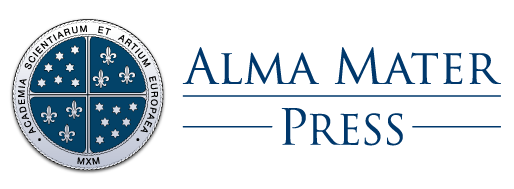Policies
DIRECTION AND SCOPE OF WORK
The Alma Mater Press University Publishing House invites proposals and ideas for publishing book publications in the central thematic and study fields covered by our publishing house and Alma Mater Europaea University. If you wish to submit a proposal as an author, please follow the manuscript submission guidelines.
PEER REVIEW PROCESS
Submitted manuscripts will undergo a thorough peer review process to ensure scientific quality and excellence. The review procedures are managed by experienced editors in cooperation with external reviewers, who assist in preparing the manuscript content for publication. If the work is published as part of a regular book series, the manuscripts are also reviewed in coordination with the series editors, i.e., experts in the relevant field.
OPEN ACCESS POLICY
The publishing house enables open access to its content, based on the shared principle that free accessibility and free downloadability of published books allow for wider global knowledge exchange. Open access research and online availability of publications benefit the general public, researchers, and the economy—something authors should be aware of.
DATA PROTECTION AND PRIVACY STATEMENT
The names, surnames, and email addresses entered on this website will be used solely for the purposes of publishing and promotional activities of the publishing house or related publishing activities. They will not be shared with third parties for any purpose.
HANDLING OF UNETHICAL CONDUCT
Anyone can report unethical behavior or abuse to the Editor-in-Chief. Reports may concern violations of ethical principles. Whistleblowers may remain anonymous. They are required to provide documentation and evidence that clearly demonstrates the unethical behavior. The Editor-in-Chief and other editors must treat each report with equal seriousness until the investigation is concluded. The investigation is initiated by the Editor-in-Chief, who may consult other editors. The investigation must be conducted in such a way that the identities of the persons under investigation are not made public. The Editor-in-Chief will first inform the accused person of the allegations. If the response is unsatisfactory, the Editor-in-Chief may contact the employer or funder of the accused. Minor offenses can be dealt with by the Editor-in-Chief alone but must be reported to the rest of the editorial team. Major offenses are dealt with by the editors together with the Editor-in-Chief. If serious breaches—resulting in the retraction of a monograph—are found to be justified, the employer and funders of the offender must be informed.
Investigation outcomes (in ascending order of severity; may be applied individually or in combination):
-
Notification to the offender regarding misunderstanding or misapplication of existing standards.
-
Warning to the offender about the violation and advice on future conduct.
-
Publication of a detailed account of the violation.
-
Official letter to the offender’s employer and funders.
-
Retraction of the monograph, along with notification to the employer, funders, journal indexers, and readers.
-
Reporting the case to organizations and agencies dealing with breaches of generally accepted ethical standards.

